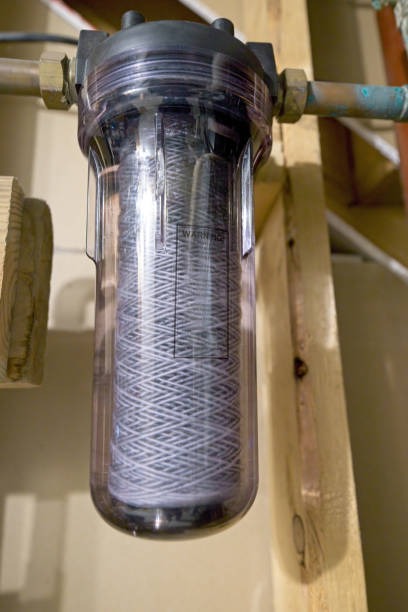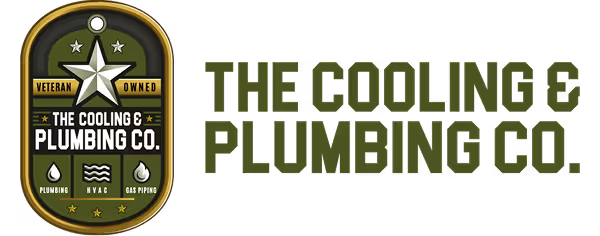Water Softener Installation in Fountain Hills, AZ
Hard water is one of the most common hidden expenses for Fountain Hills homes. High levels of calcium and magnesium cause scale buildup in plumbing, shorten appliance life, reduce water heater efficiency, and make soap and detergents less effective. Professional water softener installation in Fountain Hills, AZ ensures your whole house is protected, improves water performance, and reduces long-term repair and replacement costs.

Why Fountain Hills homes need a water softener
- Local groundwater frequently tests higher in hardness than national averages. Many East Valley sources measure in the range of 10 to 20 grains per gallon (gpg), which is well into the hard water category.
- Desert climate increases reliance on municipal or well supplies that concentrate minerals through evaporation and irrigation return flows.
- Common signs in Fountain Hills homes: white scale on fixtures and faucets, spotty dishes and glassware, shorter water heater life, and reduced efficiency in irrigation equipment and pool heaters.
On-site water hardness testing and diagnosis
A proper installation starts with accurate measurement:
- Technicians perform an on-site hardness test measured in grains per gallon (gpg) and often verify total dissolved solids (TDS) and pH.
- Tests determine water usage patterns, family size, and peak flow needs so the softener is sized correctly.
- Testing also checks for iron, chlorine, or other contaminants that affect resin life or recommend pretreatment (e.g., iron filter or sediment filter).
Salt-based softener technology explained
Salt-based ion-exchange softeners are the industry standard for whole-house softening:
- Hard water ions (calcium and magnesium) are exchanged on a resin bed for sodium or potassium ions.
- Over time the resin becomes saturated with hardness minerals and goes through regeneration using a brine solution from the salt tank.
- Regeneration frequency varies by system design and household demand; modern units use demand-initiated regeneration to conserve salt and water.
System sizing and model selection
Choosing the right system depends on:
- Measured hardness (gpg)
- Household daily water usage (gallons per day)
- Peak flow requirements for showers, irrigation, or multiple fixtures in use simultaneously
- Space constraints and preferred installation location
Typical sizing guidance:
- Small households with low usage and moderate hardness: 24,000 to 32,000 grain capacity
- Average families: 32,000 to 48,000 grain capacity
- Larger homes or well water with very high hardness: 64,000 grains or combination systems
Installation process and plumbing considerations
A professional install includes:
- Site evaluation for the softener and brine tank location—garage, utility room, or exterior shade area with level surface and drain access.
- Installation of a bypass valve for maintenance and holiday settings (for irrigation or pool fills).
- Connection to cold water supply, installation of a drain line for regeneration waste, and low-voltage electrical hookup for the controller.
- Installation of prefilters if sediment or iron is present, and optional post-treatment like activated carbon or reverse osmosis for drinking water.
- Pressure and leak tests and programming the controller for correct regeneration settings.
Plumbing notes for Fountain Hills:
- Provide a nearby drain that meets local codes and avoids runoff into landscaping.
- Consider a dedicated soft water line or bypass for irrigation and outdoor hose bibs because softened water contains sodium or potassium that can affect certain plants and pools.
Regeneration schedules and salt management
- Modern systems typically use demand-initiated regeneration, which triggers only when the resin capacity nears exhaustion. That reduces salt and water usage compared with clock-based systems.
- Salt usage varies with hardness and family size: homeowners commonly expect 10 to 50 pounds of salt per month, depending on system settings and consumption.
- Recommended salt types: evaporated salt pellets have the fewest impurities; solar salt and rock salt are alternatives but may require more frequent cleaning of the brine tank.
- Salt tank checks: monthly visual checks are recommended; clean the brine tank every 1 to 3 years depending on salt quality and sediment.
Benefits you will see after installation
- Reduced scale on faucets, fixtures, and inside appliances
- Longer life and improved efficiency of water heaters, dishwashers, and washing machines
- Softer-feeling water that requires less soap and detergent, improving laundering results
- Fewer clogs and reduced maintenance on plumbing and irrigation components
- Improved hot water delivery and lower energy bills due to less scale insulating heating elements
Maintenance requirements and warranties
- Routine maintenance: salt checks monthly, resin inspection as recommended, sanitizing once per year if needed, and replacing sediment or carbon prefilters on schedule.
- Resin typically lasts 10 to 15 years; heavy iron can shorten service life and may require iron-specific treatment.
- Most professional installations offer a parts and labor warranty for one year with optional extended service packages that include annual checks, priority scheduling, and discounted repairs.
- Ask about manufacturer warranties on the control valve and resin tank for longer-term coverage.
Pricing estimates and financing options
- Installed salt-based whole-house systems typically range from $1,000 to $4,000 depending on capacity, pretreatment needs (iron or sediment filters), complexity of plumbing work, and model features.
- High-capacity or specialty systems (e.g., twin-tank units for continuous soft water) fall at the upper end of the range.
- Financing options are commonly available through provider programs to spread costs over time, and many homeowners find immediate energy and appliance savings offset initial expense over several years.
Before and after expectations
Before:
- Visible scale on faucets, cloudy glassware, and the need for more soap or detergent.
- Frequent descaling or shortened appliance lifespans.
After:
- Immediate improvement in water feel and soap performance.
- Scale formation will slow dramatically. Existing scale requires cleaning or replacement; the softener prevents new buildup.
- Reduced maintenance calls for plumbing and appliances over time.
Frequently asked questions
Q: Will softened water increase sodium in my drinking water?
A: Softening exchanges hardness for sodium or potassium. Sodium added is small; those on low-sodium diets may prefer a dedicated reverse osmosis system or use a bypass for drinking water.
Q: Do water softeners remove iron or chlorine?
A: Standard softeners reduce small amounts of iron but heavy iron requires an iron filter first. Softeners do not remove chlorine; an activated carbon filter is recommended to improve taste and odor.
Q: How long does installation take?
A: Most residential installs are completed in 2 to 4 hours if no major plumbing modifications are required.
Q: Can softened water be used on plants or for pools?
A: Softened water contains sodium or potassium; use bypass lines for irrigation and pool fills to protect sensitive plants and maintain pool chemistry.
Q: How often will I need to add salt?
A: Typical households add salt every 4 to 6 weeks. Frequency depends on system settings and household water usage.
A professionally sized and installed water softener tailored to Fountain Hills water conditions protects your plumbing and appliances, improves water comfort, and reduces ongoing maintenance costs. With correct testing, model selection, and regular service, a softener is a reliable long-term solution for hard water challenges common to the East Valley.






